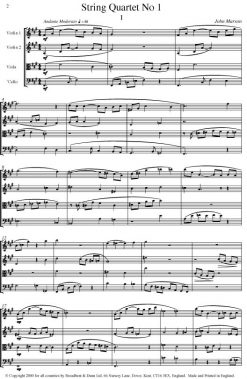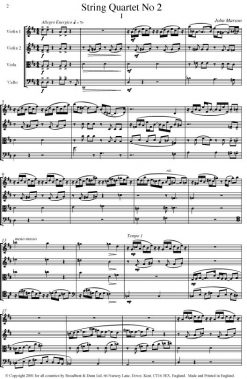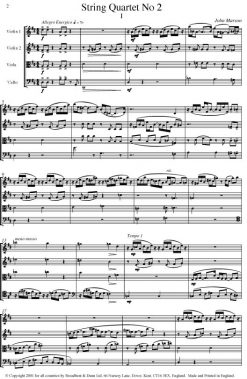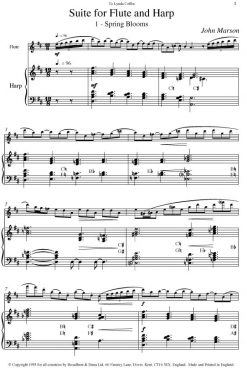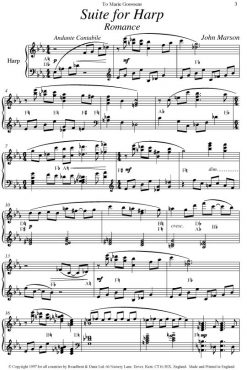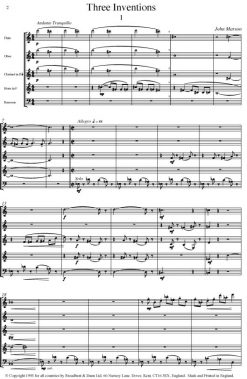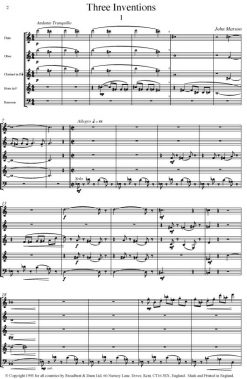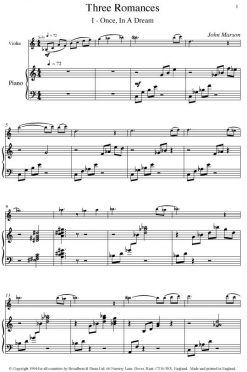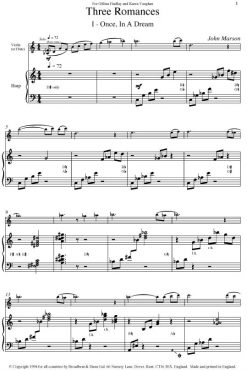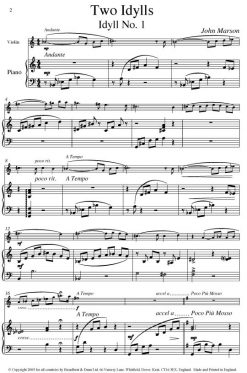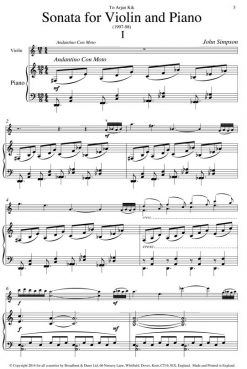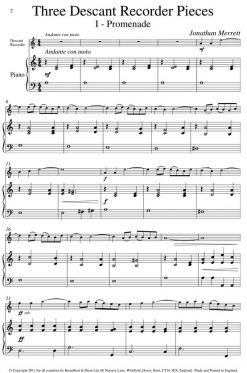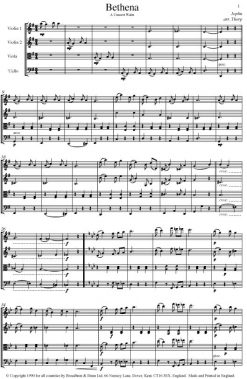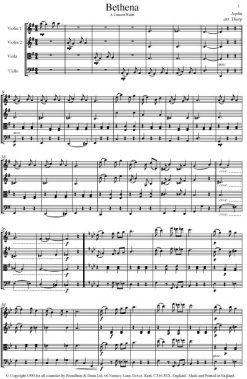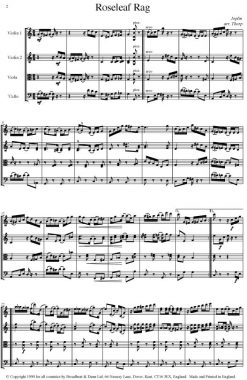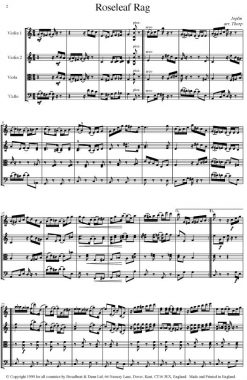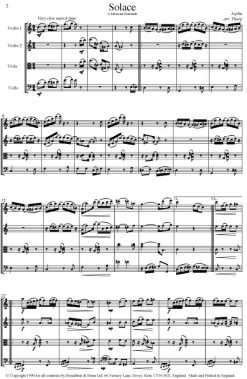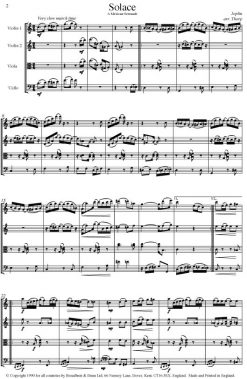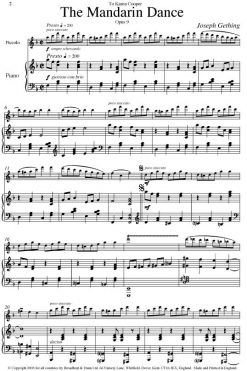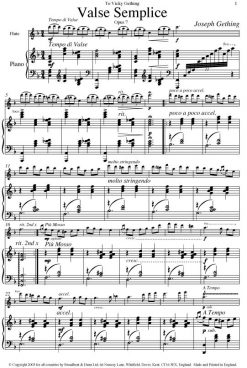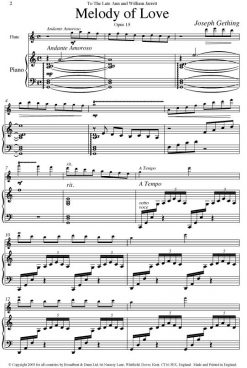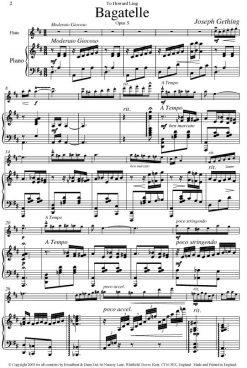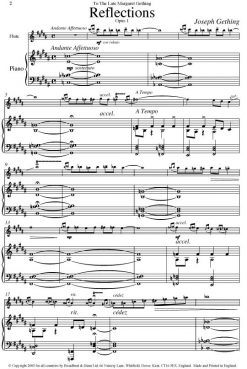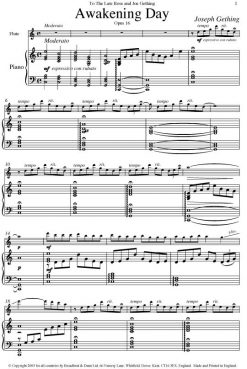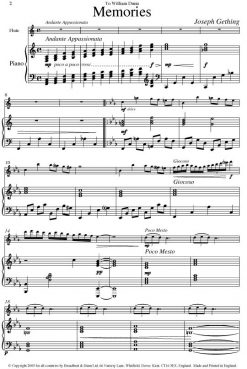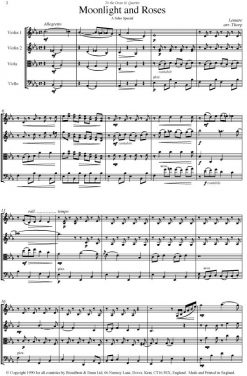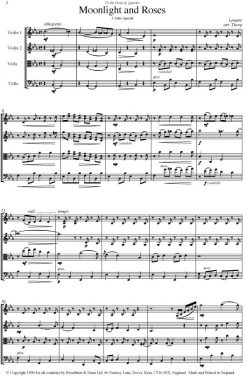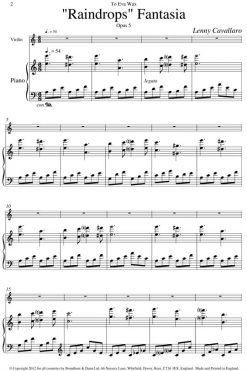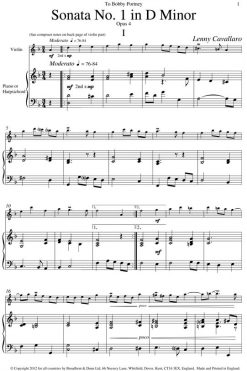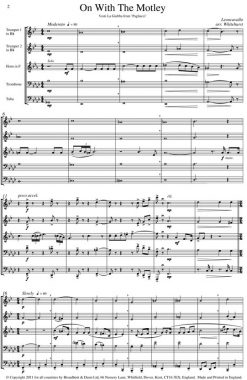String Quartet
String Quartet
String Quartet
Trinity College London Diploma Level ATCL Exam Piece from January 2022
Although somewhat modernist in style, this suite by John Marson retains the form and disciplines of conventional music and is by no means avant-garde. Its four movements provide strong contrasts leading to a vigorous conclusion.
Violin & Piano
John Marson – Two Idylls (Violin & Piano) – Digital Download
Descant Recorder & Piano
Jonathan Merrett – Three Descant Recorder Pieces – Digital Download
Lemare, Edwin Henry
Lemare – Moonlight and Roses (String Quartet Parts) – Parts Digital Download
Lemare, Edwin Henry
Lemare – Moonlight and Roses (String Quartet Score) – Score Digital Download
Violin & Piano
Lenny Cavallaro – “Raindrops” Fantasia for Violin and Piano, Opus 5 – Digital Download
Violin & Harpsichord
This 2014 publication might well have been composed 300 years earlier, being a truly baroque sonata in four movements (slow-fast-slow-fast). The composer has adhered not only to the harmonic and structural idioms of the time, but also to many of the other "unwritten" conventions. The work invites a great deal of freedom, and even leaves room for some improvisation. In the third movement the violin enters on a long, held note - this pattern recurs throughout, and in some ways appears to echo similar long notes in Bach's B Minor Sonata. The last movement is a set of variations, though neither chaconne nor passacaglia - these are melodic, in the Italian manner, and clearly sound less baroque. The thematic material derives from the opening of Papageno's aria Ein Mädchen oder Weibchen from Mozart's Magic Flute, but transposed from F Major to D Minor. This sonata was premiered at the Lincoln Center by Bobby Portney and has subsequently been recorded by Sarah Darling and can be heard on YouTube: https://www.youtube.com/watch?v=UigLnCPNYSw
Brass Quintet
Leoncavallo – On With The Motley from Pagliacci (Brass Quintet) – Parts Digital Download

